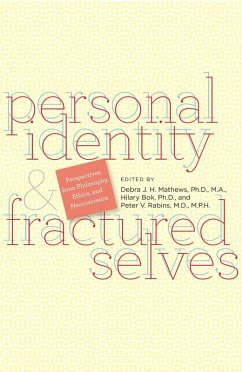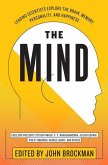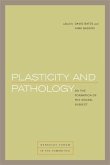In this anthology, noted neurologists and philosophers explore the concept of personal identity and the ethics of treating brain disease and injury. When an individual's personality changes radically because of disease or injury, should this changed individual be treated as the same person? Personal Identity and Fractured Selvesexplores this important question from a variety of perspectives. Its contents represent the first formal collaboration between the Brain Sciences Institute and the Berman Institute of Bioethics, both at the Johns Hopkins University. Rapid advances in brain science are expanding knowledge of human memory, emotion, and cognition and pointing the way toward new approaches for the prevention and treatment of devastating illnesses and disabilities. Through case studies of Alzheimer disease, frontotemporal dementia, deep brain stimulation, and steroid psychosis, the contributors highlight relevant ethical and social concerns that clinicians, researchers, and ethicists are likely to encounter. Contributors: Samuel Barondes, M.D., University of California, San Francisco; David M. Blass, M.D., Johns Hopkins University School of Medicine; Patrick Duggan, A.B., Johns Hopkins Berman Institute of Bioethics; Ruth R. Faden, Ph.D., M.P.H., Johns Hopkins Berman Institute of Bioethics; Michael S. Gazzaniga, Ph.D., University of California, Santa Barbara; Guy M. McKhann, M.D., Johns Hopkins University School of Medicine; John Perry, Ph.D., Stanford University; Carol Rovane, Ph.D., Columbia University; Alan Regenberg, M.Be., Johns Hopkins Berman Institute of Bioethics; Marya Schechtman, Ph.D., University of Illinois at Chicago; Maura Tumulty, Ph.D., Colgate University
Dieser Download kann aus rechtlichen Gründen nur mit Rechnungsadresse in A, B, BG, CY, CZ, D, DK, EW, E, FIN, F, GR, HR, H, IRL, I, LT, L, LR, M, NL, PL, P, R, S, SLO, SK ausgeliefert werden.









